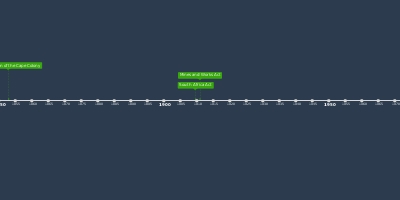7 янв 1957 г. - Alexandra Bus Boycott
Описание:
Bus boycotts were a major form of Black protest against the South African authorities, even prior to 1948.The most important of all the boycotts was the famous Alexandra bus boycott, which began in January 1957.
Predictably enough, it was triggered by the decision of the bus company, PUTCO, to raise fares from the township into the city from four to five pence.
The resulting demonstrations were on a scale unlike anything seen before in the country, with hundreds of thousands involved in the boycott and, for the first time, widespread - and often sympathetic - coverage in the White media.
The sheer magnitude of the Alexandra boycotts indicates that there was something more to the protests than a simple decision to increase bus fares.
The political temperature, both in the township and nationally, had been steadily rising for some time.
The forced evictions that had begun in Sophiatown in 1955 had been extended to "Black spots" across the nations by 1957.
Tensions were understandably high in other Black urban areas, especially Alexandra.
Minister of Native Affairs Verwoerd had made no secret of his determination to wipe Alexandra right off the map, and a series of removals, which had the effect of reducing the population of the township by the early 1960s, had already started.
The government's 1956 decision to issue compulsory passes to women had led to an eruption of spontaneous protests.
The imposition of native authorities in the reserves was another great source of anger among Black South Africans.
The boycott was seen as a major threat by the apartheid government.
This was not a campaign that had been planned or initiated by the ANC or any other political party, and for that reason it seemed all the more dangerous.
For the authorities, spontaneous demonstrations involving hundreds of thousands of Africans, who felt that they had nothing to lose by protesting, could seriously threaten the basis of the apartheid regime.
Previous protests that were orchestrated by the liberation movement, most notably the Defiance Campaign, had been quashed when the government clamped down on its organizers.
These boycotts only came to an end when the demands of the protesters had been met.
Similar protests in future might result in the government having little choice but to make major political concessions.
The bus boycott also saw a sudden and unexpected outpouring of sympathy in the White community for the victims of apartheid.
This strong display of White fraternity with Africans, which for the first time stretched beyond the narrow left-wing circle of the Congress of Democrats and the South African Communist Party (SACP), was viewed by the government as another dangerous development.
For the ANC, the Alexandra bus boycott was a double-edged sword.
It demonstrated that the government had liggtle effective response to a demonstration that was genuinely popular.
If mass public anger could be harnessed more effectively then there was not telling what might be achieved.
The trouble was that the ANC might find it very difficult to control and direct a genuine mass movement that it had not itself initiated, which could then spark a backlash.
Добавлено на ленту времени:
Дата:
7 янв 1957 г.
Сейчас
~ 68 г назад
